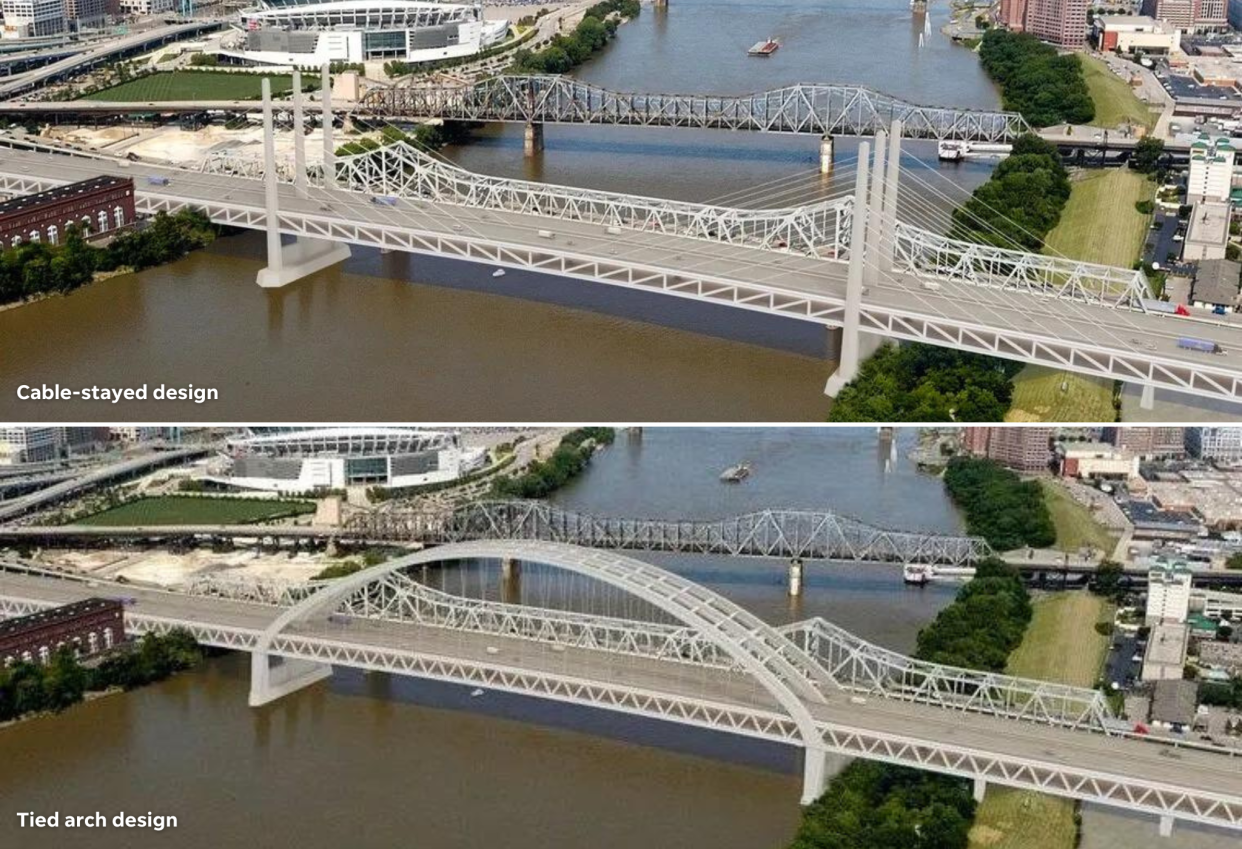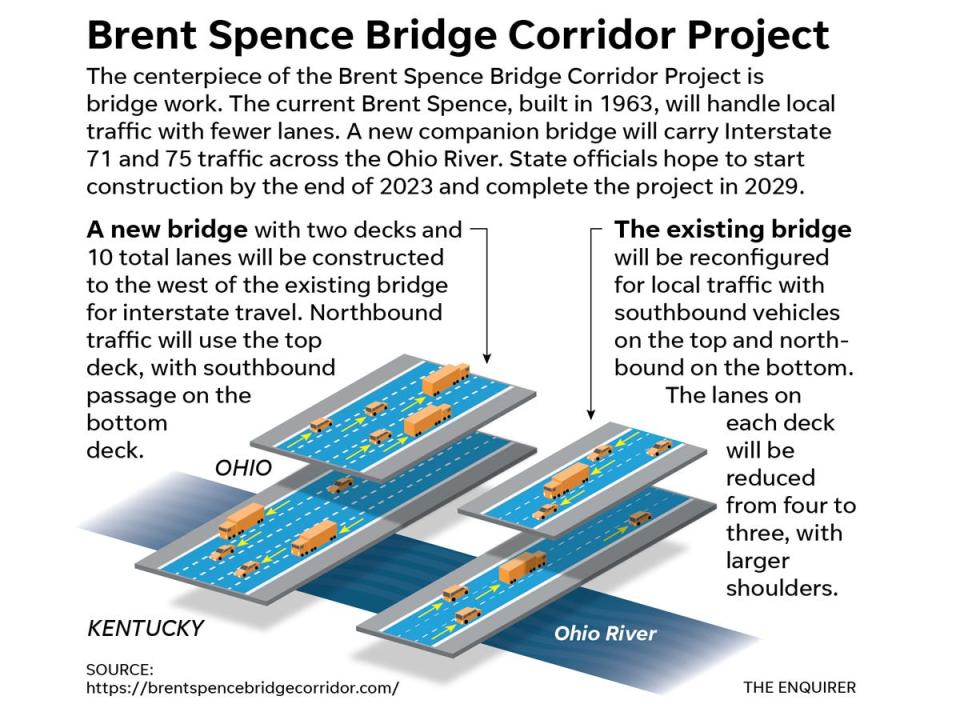Opinion: Plenty not to like about Brent Spence Bridge project

Politicians from across the partisan spectrum recently joined hands on the banks of the Ohio River to celebrate the funding of the Brent Spence Corridor Project. Mayor Aftab Pureval followed this celebration with a national media appearance to promote the Brent Spence Corridor Project as an example of both political parties "putting all the partisan crap aside and getting stuff done for our citizens."
There may be more to this story, however. Commenting on the history of highway expansion in the United States, historian Mark Rose quipped, "Here is something that labor and management really can agree on: a highway contract.” At the risk of saying the quiet part out loud, what we witnessed in Covington was the party of labor and the party of management coming together to congratulate each other on the appropriation of nearly $4 billion in construction contracts to the benefit of their respective influential special interest groups.
At this point, some might object by arguing that, even if the chambers of commerce and our hard-working local labor unions benefit from the Brent Spence Corridor Project, increasing regional highway capacity must also benefit the general public, right? Unfortunately, this belief encounters some major unresolved problems. These problems arise in three main areas: sound transportation policy; civil rights concerns; and adverse environmental impacts.

After decades of highway construction in the United States, it is now well established in the field of transportation and urban planning that these projects eventually lead to a counterintuitive outcome. When you expand highway capacity to make driving more convenient, you draw more vehicle trips onto the newly expanded highway and create more traffic instead of relieving congestion. John Caskey, who teaches urban economics at Swarthmore College, has stated that this principle, called induced demand, is widely accepted.
"For economists interested in urban transportation, there really isn’t any debate," he said.
For the Brent Spence project, OKI projections show that this corridor will carry over 227,000 vehicles per day in 20 years, which suggests their awareness of this principle as well. After expansion, our region will be subjected to more congestion at a higher traffic volume. As misunderstood as it may be, roadway pricing is more effective at managing traffic congestion, and it is vastly more cost-effective.
In the area of civil rights, the president himself has stated that "[t]he creation of the Interstate Highway System, funded and constructed by the federal government and state governments in the 20th century, disproportionately burdened many historically Black and low-income neighborhoods in many American cities." Under Title VI of the Civil Rights Act of 1964, ODOT and KYTC are required to take "affirmative action to remove or overcome the effects of the prior discriminatory practice or usage" of a federal program. In this case, the adverse economic, environmental, and public health impacts of prior interstate highway construction through Cincinnati’s West End and Covington’s Lewisburg have not been removed or overcome, and these issues have received very little consideration in the development of this project.

The last unresolved area of concern is the adverse environmental impact of the project. ODOT and KYTC justify the project by stating that improving traffic flow will lead to reduced greenhouse gas emissions because there will be less standstill traffic. This argument, originally made by the state DOTs in 2011, runs contrary to USDOT statements in a more recent court case, during which USDOT has acknowledged that induced demand leads to more traffic and more emissions. As stated previously, OKI projects that over 227,000 vehicles will travel this corridor in 20 years.
If you believe that more traffic will lead to improved air quality, ODOT has a bridge to sell you. The particle pollution from increased traffic emissions will have a disproportionate negative public health impact on minority and low-income communities in our region, consistent with research cited by the American Lung Association, which named Cincinnati as the 12th worst metropolitan area for annual particle pollution in a 2022 report. This worsened air pollution from the Brent Spence project will perpetuate the ongoing harm to protected populations under the Civil Rights Act.
For the taxpayers who are funding this project, there is something for everyone to dislike, whether you are on the left, right, or center: it is a waste of taxpayer dollars, as highway expansions have been in the past; it exacerbates disproportionate harms to already disadvantaged communities; and it worsens air quality and public health outcomes.
A group of concerned citizens and nonprofit organizations called the Coalition for Transit and Sustainable Development has submitted a letter to the Federal Highway Administration outlining these concerns in more detail, and we hope that the federal government will seek satisfactory answers from the state DOTs. You can read the full letter at sustainablecincy.org/letter.
Ryan Crane is an ear, nose and throat physician in Cincinnati and is a founding member of the Coalition for Transit and Sustainable Development.

This article originally appeared on Cincinnati Enquirer: Opinion: Plenty not to like about Brent Spence Bridge project

